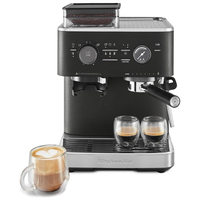I'm an ex-Starbucks barista — here's how I got cafe-quality latte art at home
I'm one compliment away from Instagramming every latte I make

As much as I love my journalism career, barista-ing holds a special place in my heart. Cumulatively, working at various cafes has been my longest form of employment. From a year at Costa Coffee (kind of like the U.K. equivalent of Starbucks, but more Italian-inspired), a year at an artisan independent coffee shop (I know, I felt really cool), to eighteen months as a supervisor at Starbucks — I’ve done my fair share of making coffee.
Whenever I visit my family home, I’m always roped into making everyone a coffee using our (very) basic and old De’Longhi Vintage Icona. It’s fine, it works, it makes tasty drinks. But can I do latte art with its spitty steam wand? No. No I can’t. And I couldn’t with the Smeg ECF02 Espresso Machine I’ve just tested, either. I was beginning to think it was impossible with at-home espresso machines.
KitchenAid Semi Automatic Espresso machine: $699 @ Amazon
The KitchenAid Semi Automatic machine is a stylish, effective, and reasonably-priced espresso machine. Perfect for making cafe-quality drinks at home, the premium machine brews layered, balanced, and delicious espresso. On top of that, the powerful 15 bar pressure machine’s steam wand makes velvety milk, ideal for practicing latte art.
Enter the KitchenAid Semi Automatic Espresso Machine (with Burr Grinder!). I’ve never experienced power like this before. Not on a non-professional machine. It’s not even that expensive — $699. Objectively, that’s a lot of money, but for an espresso machine and grinder? It’s one of the lowest MRSPs I’ve ever seen.
Choose your grinder
The KitchenAid Semi Automatic has a built-in burr grinder. There are two main types of coffee grinder: bladed, and burr. Most cafes will use burr grinders — including Starbucks and Costa.
A blade grinder works by slicing the beans into your desired size. This creates friction, heat, and can be inconsistent, meaning some grounds will be larger than others, so some parts of your coffee puck will be over-extracted, and some under-extracted. This results in an uneven flavor palate.
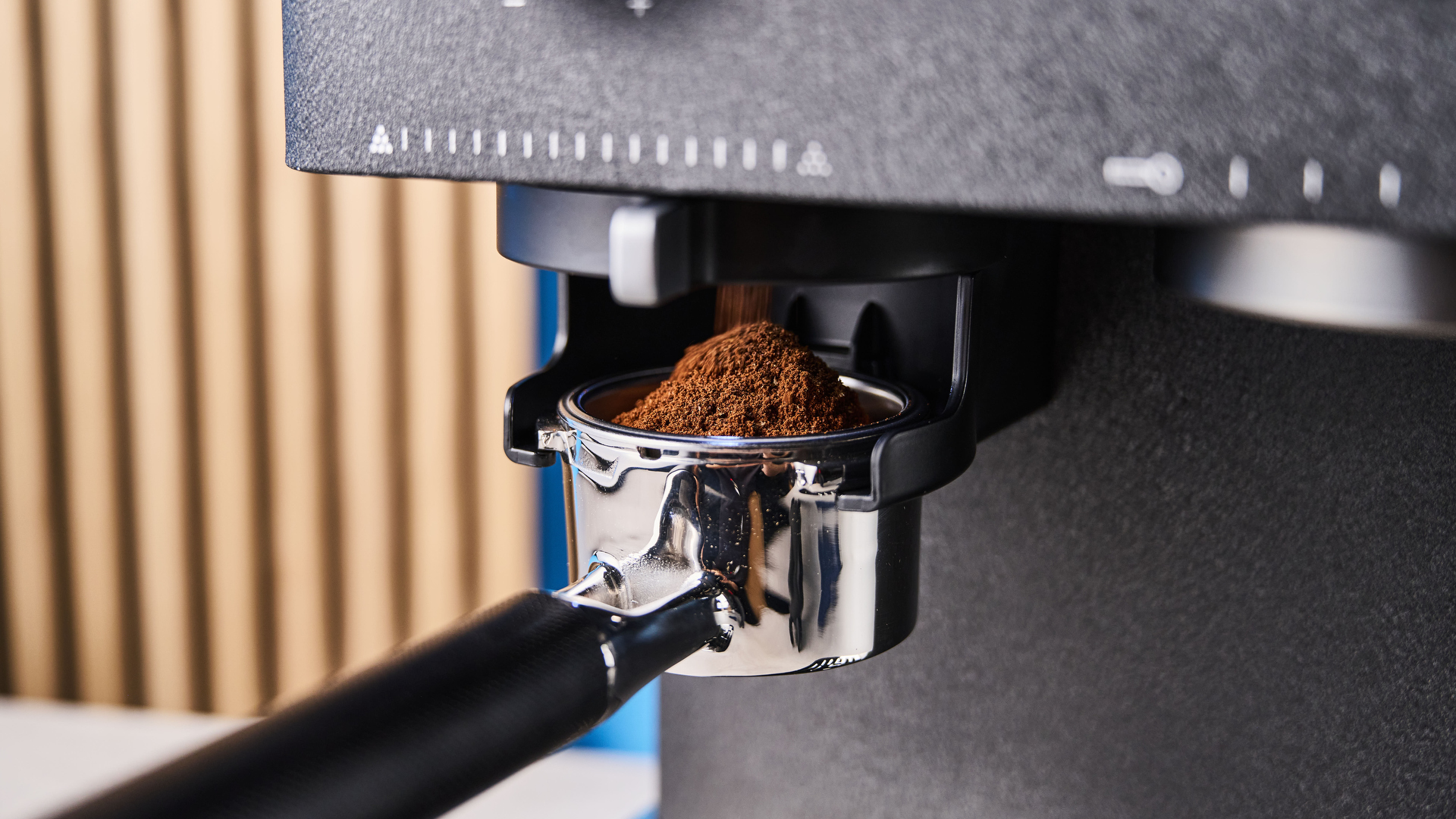
A burr grinder works by crushing the beans. This is a faster, more specific way of grinding beans. Your burr grinder won’t create excess heat and makes an even grind. As a result, your espresso will be delicate and balanced, as all grounds will be the same size. Not only does this machine have a built-in burr grinder, you can adjust the size and dose exactly to your liking with a handy dial. You’ll be able to find your ideal flavor with this customization.
That’s that me espresso
Once you’ve found your perfect grind, it’s time to really put the KitchenAid to work. Pulling shots is supremely easy: you simply click the group handle into place using the single-walled portafilter (you can use dual-walled, too, if you use store bought pre-ground, although I wouldn’t advise doing so), select single or double shot, and press the button. Ta-da! It’s like magic. The machine will pour you a gorgeously complex shot. As with all good espresso, you can literally see the three layers of the shot: the dark brown heart, the toffee-colored body, and the fluffy meringue-like crema.
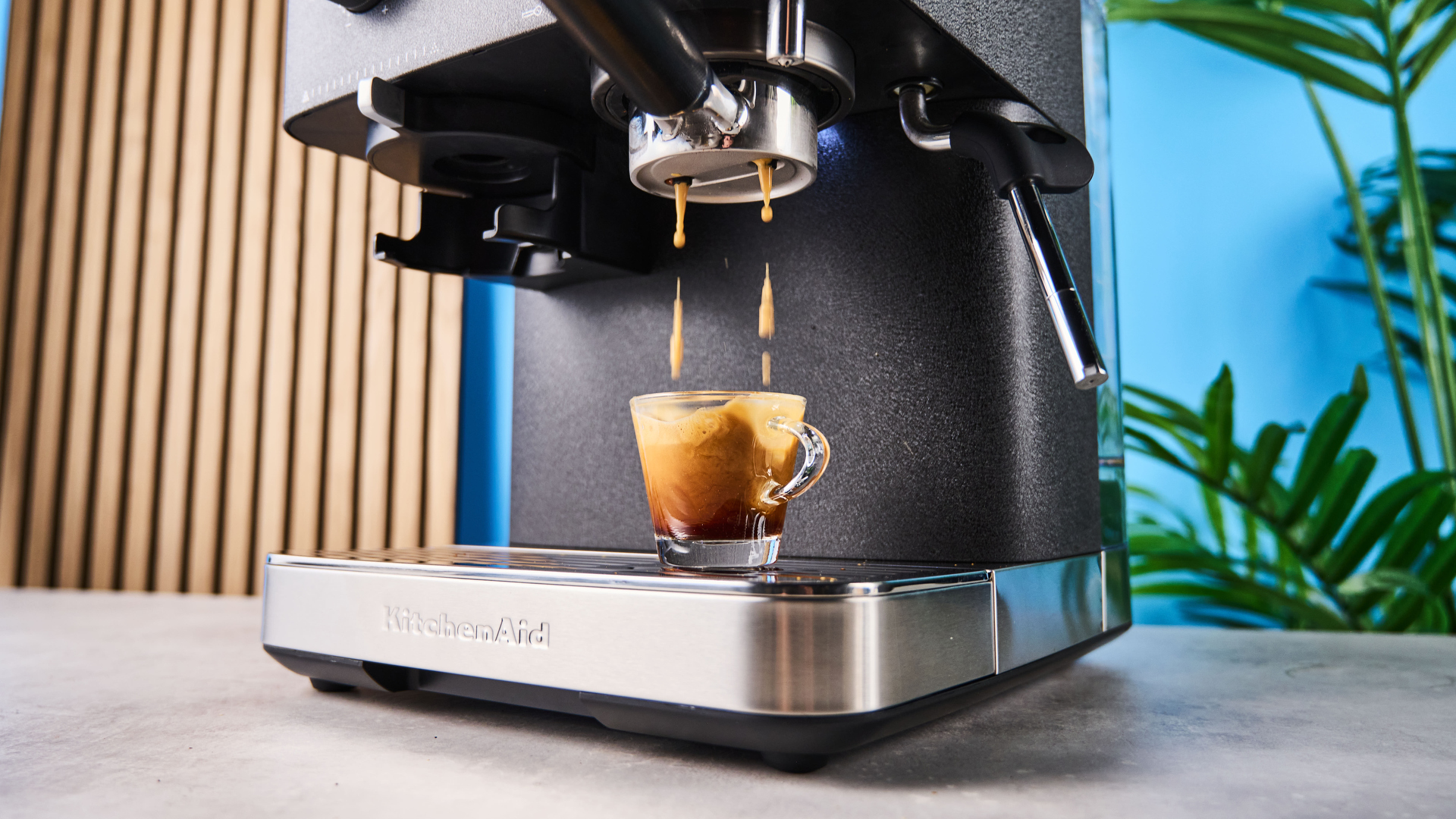
I was so eager to drink this espresso shot that I burnt my tongue on it. Don’t be like me, wait just a second for it to cool — but when your espresso looks this good, how can you wait?
Magic steam wand
Sure, many at-home espresso machines can pull good shots. But how many of them can make decadent, aerated, velvety microfoamed milk? The answer is: not many. So far in my experience, just this one, actually.
With 15bar pressure, you’d expect an at-home machine to be able to make microfoam. But that’s not the case for all of them. But the KitchenAid is different. Look at this latte art.
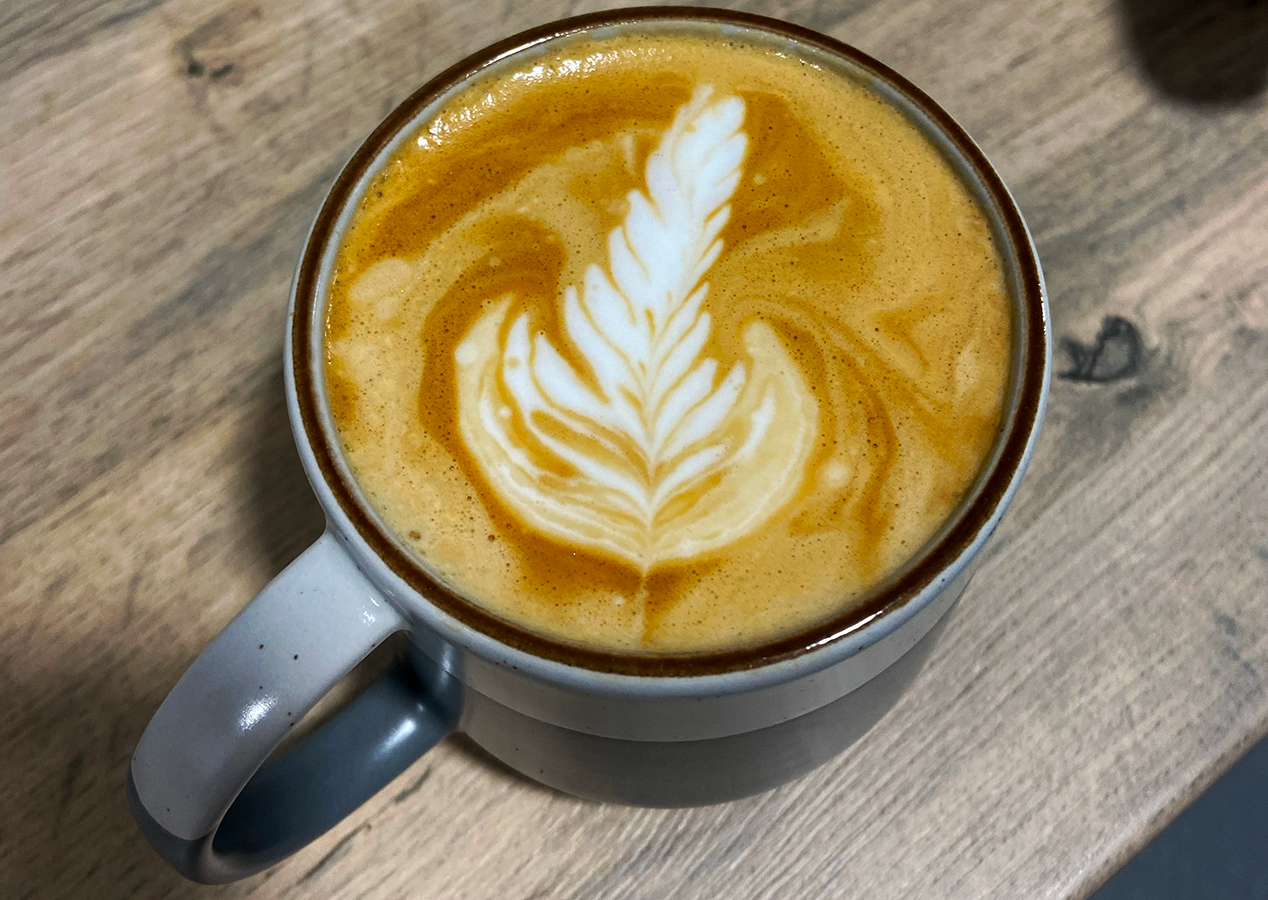
I know — it’s not perfect. But it’s been three years since I was last behind the bar in a coffee shop, so I’m a bit rusty. To get this result on my second try, though? I couldn’t have done it without the KitchenAid Semi Automatic’s help. There’s no reason why you wouldn’t be cafe-level good within a few months of making daily lattes with this machine. Now everyone can be a latte artist!
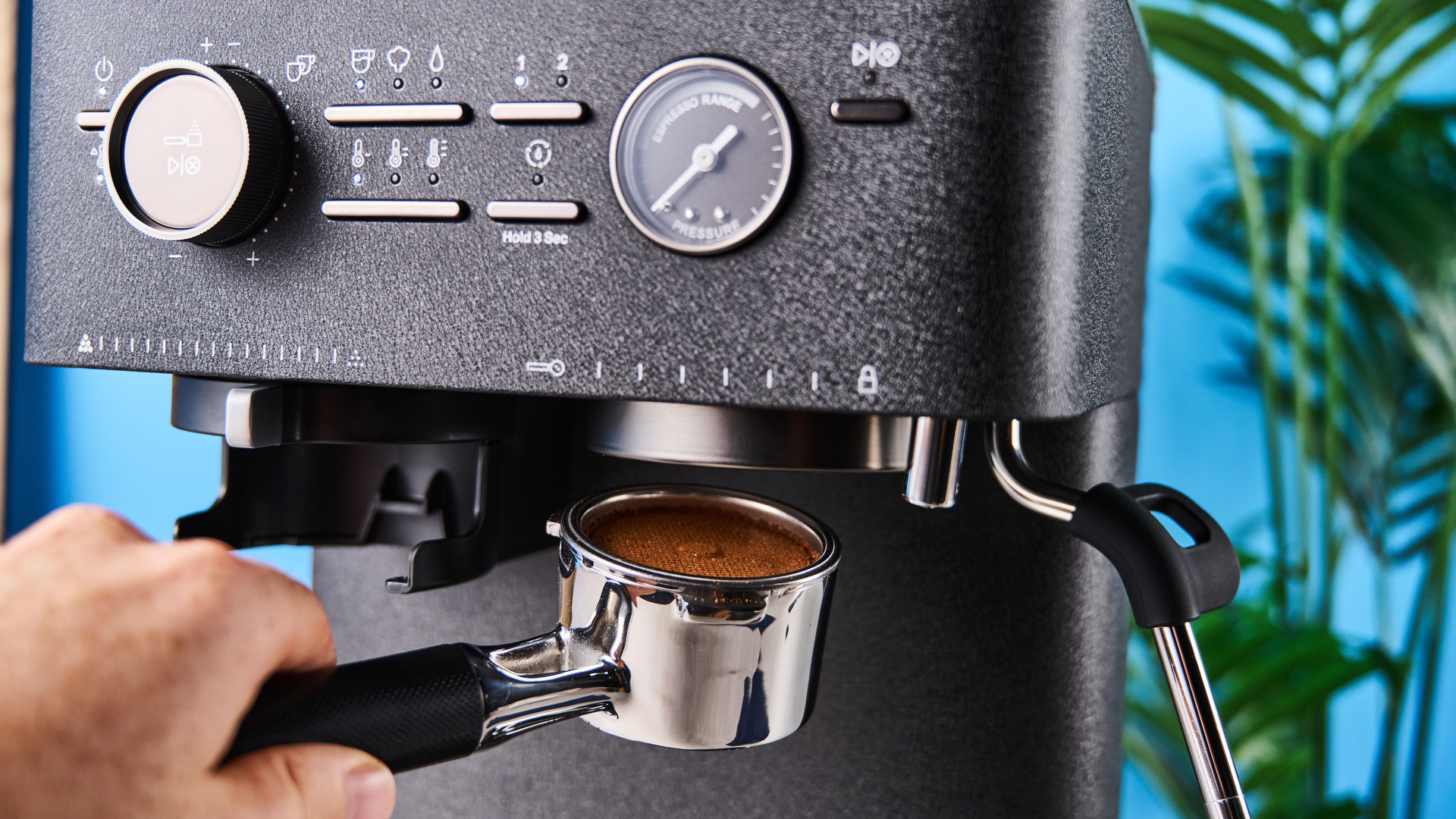
I feel like I’m hard to impress when it comes to coffee machines. Not because I’m a coffee nerd, not at all, but because it’s an occupational hazard of ex-baristas to compare their home machines to the professional-quality ones they were once used to. But with the KitchenAid Semi Automatic Espresso Machine with Burr Grinder, I’m the closest I’ve ever been to my coffee house days.
Sign up to get the BEST of Tom's Guide direct to your inbox.
Get instant access to breaking news, the hottest reviews, great deals and helpful tips.

Erin Bashford is a staff writer at Tom’s Guide, covering reviews. She has a Masters in Broadcast and Digital Journalism from the University of East Anglia and 7 years of experience writing music, events, and food reviews. Now she’s turned her attention to tech for Tom’s Guide, reviewing everything from earbuds to garlic crushers. In her spare time you can find her reading, practising yoga, writing, or stressing over today’s NYT Games.
